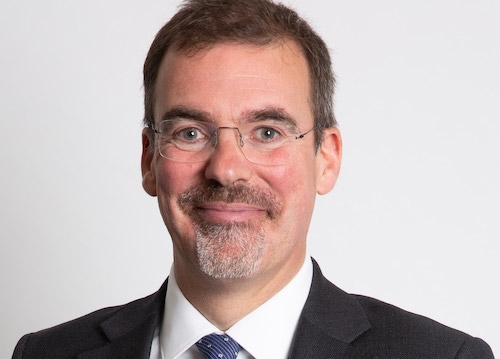Financial Planning Today editor Kevin O'Donnell caught up recently with John Porteous, managing director of the new Central Financial Services division at wealth manager Charles Stanley. He talked about his new role, his plans for the division and the future of advice.
Financial Planning Today: John, tell us about your new role at Charles Stanley. What does it encompass and why are you leading what is a new team for Charles Stanley?
John Porteous: We have created a new division within Charles Stanley called ‘Central Financial Services’ where we are focusing specifically on key accelerating markets. This includes Charles Stanley Direct, our internal Asset Management capability and a new service line that we are calling Foundation Services – where the emphasis is on building out a compelling light touch advice and guidance offering that aligns with our broader digital capabilities.
Financial Planning Today: You’re a big believer in hybrid advice. Can you explain what this and why it is important to CFS?
JP: I think the experiences of the last 18 months have opened people’s minds as to how they want to access advice, consume digital content, and ultimately interact with their advisers. Our research has shown that clients (both existing and prospective) value the reassurance and identity of qualified and professional advisers, but equally appreciate the convenience and connectivity of digital access. I expect there to be many different types of ‘hybrid’ models coming to market, which may make the labelling too generic. We think we have found a practical and innovative way of delivering value to those individuals who want to take their first steps on the advice/planning journey.
Financial Planning Today: For a typical customer what will the process be and what are the charges? Are these clients very different to traditional Financial Planning clients?
JP: Clients will be able to access advice across mainstream planning topics on a fixed fee basis. Where they would benefit from more detailed guidance or their needs are of a more complex nature, they will be referred into our Financial Planning team. Target clients are likely to fall into a number of discreet categories where we have identified a specific interest in services of this type – namely:
- those who are not fully confident as a DIY investor and need help
- those under 55 and not yet advised
- the segmented and disenfranchised
- those at an advice event crossroads and want to explore the topic in detail before deciding on how best to proceed.
We would describe the typical client for Foundation Services as ‘post Google but pre-planning’ – who more often than not are time light and cost sensitive. During our client research we found these characteristics very relevant.
Financial Planning Today: Some Financial Planners may see the emergence of hybrid advice as a threat to their business. How do you respond to this and how can planners work with the hybrid model?
JP: I think the labelling of ‘hybrid’ advice will become very generic with so many different approaches now on offer, especially as Financial Planners deploy technology more directly within their own proposition. I can envisage a number of situations where ‘simplified’ propositions align and compliment full planning services – such as when used in an ‘omni channel’ advice offering or deployed as an initial triage for certain clients. I can certainly see a significant market developing in the workplace space.
Financial Planning Today: Do you think the robo-advice model is finished and it will be replaced by a hybrid model?
JP: I think we will see an increase in digital adoption and engagement across the board. This will be both demand pull and proposition push. I think it is too early to determine who will be the ultimate winners, but I think it is fair to say that a number of Robo models have found it hard to keep the costs of new client acquisition down to a level that can balance out their proposition expenditure and brand build. Established firms have the significant advantage of a managed ‘migration’ of existing clients to online models which has the potential to enhance customer outcomes - when designed well and used properly - and over the long term, reduce the costs of account servicing.
A potential catalyst over the medium to longer term may be the way services are regulated. The natural tension between digital innovation, evident in the wider service economy, and regulation, that has been based on more traditional face-to-face services, feels like it is getting out of kilter – especially when considering the influence of social media.
Financial Planning Today: How has the pandemic affected your plans?
JP: I feel that we were highly productive during the pandemic. We quickly adapted to changing circumstance and engaged with our clients throughout the design of our Foundation Services. In many respects it was an accelerant of change where people evolved their thinking out of necessity. As we now start to return to a ‘new normal’ it is evident that some deep-rooted changes have become evident, such as a hybrid advice model. Perhaps the biggest lesson of all relates to a simple theme that we have placed at the heart of our thinking; value is in eye of the beholder – if you don’t ask them what it is…then you will never know.
John Porteous biography: John Porteous is managing director of Charles Stanley Central Financial Services and joined the firm in March 2019. He has over 30 years industry experience in the wealth management sector. He is qualified as both a Chartered and Certified Financial Planner and is a Fellow of the Chartered Institute for Securities & Investment and holder of the IMC. He is a regular presenter at industry events and has held a number of leading roles including as chairman of the Society of Financial Advisers, director of the Institute of Financial Planning and council member/director of APFA.

